Anthony Albanese: always the passion, now for the power
In a personally revealing interview, the Opposition Leader says he is ready to be PM. But is it enough for voters to put their faith in him?
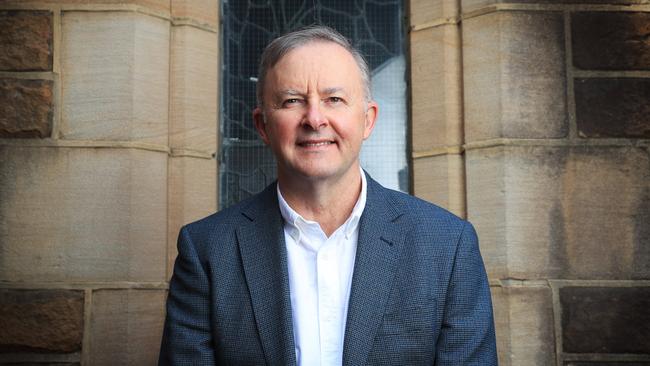
When Anthony Albanese was elected to parliament 25 years ago, he did not aspire to become Labor leader or prime minister. He did not have Bob Hawke’s sense of destiny, nor was he driven by burning ambition like Gough Whitlam and Kevin Rudd. They are the only Labor leaders who have taken the party from opposition to government in the post-war era.
It was only in 2013, following Labor’s election defeat, that Albanese seriously thought about leading the party he served all his adult life. Albanese, who has more parliamentary and ministerial experience than either Rudd, Hawke or Whitlam when they became prime minister, believes he too will return Labor to power.
“When I came into parliament you would have got good odds on me becoming leader,” Albanese tells Inquirer in an exclusive interview.
“I wanted to be a minister. I thought Kevin Rudd would lead us for a period and Julia Gillard was the obvious replacement. I thought we would be a long-term government and that would see me out of parliament.
“I had to weigh up whether that was a precondition for leadership – whether you had to be somebody who wanted it your whole life. In 2019, once it was clear we had lost, I declared the next day that I would run as leader. Since then, I’ve been focused on two things: winning the election and a platform that is deliverable and enables us to be a long-term government.”
In a personally revealing 90-minute interview, the Opposition Leader says he is ready to be prime minister, hungry for the job and upbeat about Labor’s election chances. The polls show Labor ahead of the Coalition in what will be a competitive election.
“I’m confident but not complacent,” Albanese says. “We have put ourselves in a position to win but experience shows there’s nothing certain in politics and we know that events can intervene that are beyond anyone’s control.”
Tribal commitment to Labor pulses through Albanese’s veins. His late-in-life quest to be leader was thwarted by Bill Shorten in 2013 but he seized the job unchallenged in 2019. He saw Labor tear itself apart in government and fail to regain power in opposition. Leading a party that he idolises weighs heavily.
Labor is a party in transition. It has lost three elections in a row. Labor has won a majority of seats at just one election (2007) since 1993.
Much is at stake for Labor, having lost voters to the Coalition and One Nation on its right flank and to the Greens on its left flank, and Albanese knows it.
Controversial policies on negative gearing, capital gains tax and franking credits have been dumped, and Labor will not oppose tax cuts that benefit higher-income earners. Albanese has eschewed class war rhetoric and is unapologetic about leading Labor back to the centre ground of politics.
“It is hard for Labor to form government,” Albanese rationalises. “We did put positions to the Australian people, some of them twice, and people cast their votes. It is also the fact that oppositions seeking to form government, whether they be Rudd, Hawke or Whitlam, didn’t go to elections advocating major new taxes.”
Although pragmatic, it has also been characterised as emblematic of a small-target approach to policy. Labor true believers, unions, the social welfare lobby and progressive think tanks want the party to be bolder. They worry Labor lacks cut-through and an animating agenda that captures the imagination. Voters have fewer reasons to vote against Labor, but they also need reasons to vote for Labor.
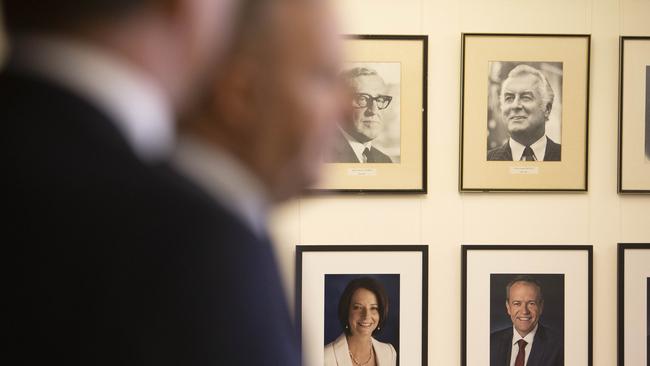
“I am ambitious to change the country for the better, but I want to ensure we bring the country with us,” Albanese argues. “I have been able to work with unions and business. I’m a proud unionist but I also want to work with employers. I’m concerned with the creation of wealth, not just its distribution.”
The Labor leader is also in transition. Albanese, 58, is no longer the young firebrand hard-left Labor warrior from the 1980s and ‘90s. His colleagues recall a tough, no-nonsense, uncompromising university activist, political staffer and party official, who held a grudge, had a chip on his shoulder and made enemies.
He was often on the losing side of totemic policy debates during the Hawke-Keating years on university fees, tariff reductions, uranium exports and privatisation. In Young Labor, he supported wealth taxes and death duties. That was a different Albanese, though, who now positions himself as a moderate leader in the Hawke-Keating tradition.
“Tom Uren used to say to me: ‘You’ve got to learn something new and grow as a person every day’,” Albanese recalls. “I still learn something new every day and I hope I’m continuing to grow as a person every day. I am much more respectful of differences of view than when I was 21. But I’m no less passionate than I was then and I’m quite prepared to engage in debate with people at any time.”
There is another side to Albanese: a loyal friend, devoted father, community champion, party stalwart, a man who has committed his life to public service and is often overly emotional and excessively sentimental. I’ve seen tears well in his eyes more times than I can remember. He is, I put to him, a hard man with a soft heart.
“That is a fair assessment,” he acknowledges. “I have a real sense of the responsibility, a weight on my shoulders, to take us to victory. It is a mountain to climb, and it requires discipline and focus. I can be very emotional – more so than you would know – because I care about people, I’m quite passionate about my beliefs and I often show that. But that doesn’t mean I am not capable of a steely resolve, and I can’t be intimidated.”
Albanese was at the forefront of debates about how to make Labor more representative of the community and more democratic in its internal deliberations. These debates have been set aside. But Labor’s existential challenges – which I have been writing about in these pages for more than a decade – that go to its constituency, structure, identity, values and purpose, must be confronted.
Today, Albanese’s priority is developing a “more strategic” policy agenda. Labor is not proposing a revolution, but he rejects the suggestion the party is risk-averse or lacking boldness. He says Labor’s program will blend ambition with practicality and be communicated as a narrative about where Labor wants to take the nation and why.
He says Labor will not have a big-taxing and big-spending agenda but lists policies on childcare, energy, training and job creation, industrial relations, climate change, infrastructure, social housing and defence. Labor would put a referendum to recognise Indigenous Australians in the Constitution and enshrine the voice to parliament, before a republic, in its first term.
Asked for his vision for Australia in a sentence, Albanese offers: “My vision for Australia is one where no one is left behind, but no one is held back from opportunity.” Asked what he would like to be remembered for as prime minister, he nominates “an Australia that makes things”, “takes advantage of our position in the fastest-growing region of the world” and is a “renewable energy superpower”.
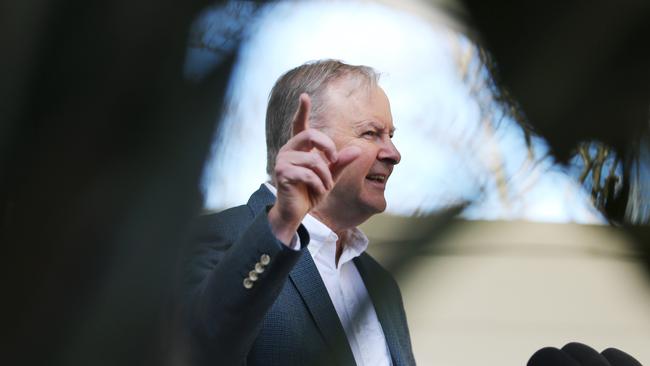
Is it enough to excite pandemic-weary voters, many of whom just want life to return to a semblance of normality, to put their faith in Albanese? Will they jettison the suburban, Sharks-loving, Pentecostal daggy dad Prime Minister for the inner-city, Rabbitohs-loving, record-spinning, craft-beer drinking, leather jacket-wearing dad prime minister?
It is not unusual for prime ministers to have an edge over opposition leaders in the polls. But more voters disapprove than approve of Albanese’s performance, which suggests he may not be winning over voters like Hawke or Rudd did. “When you are taking on the government you lose some paint on the way through,” he says.
Labor wants the next election to be a referendum on the eight-year Coalition government and which party has the better plan for post-pandemic Australia. Albanese says voters draw a blank when asked to name the government’s achievements. He says it does not deserve another three years.
He rails against “wasteful expenditure,” “sports rorts” and “commuter carpark fiascos” and lashes the government for not establishing an anti-corruption commission. A range of government scandals and gaffes, large and small, are mounting. While Albanese often appears overly negative, many of his critiques have been validated.
He acknowledges it would be difficult for anyone to be prime minister during a pandemic but is unsparing of Scott Morrison for failing to deliver vaccines sooner and build new quarantine facilities. “His failure on those jobs has had a real impact on people, including half of Australia that is in lockdown,” Albanese says.
Albanese promises a more collaborative approach to public administration that respects state governments, invests in urban and regional communities, and restores faith in politics. He would improve the transparency and accountability of the national cabinet, and include local government.
“We will have a plan to build back stronger: a better life for working families, secure Australian jobs and a future made in Australia,” he explains. “We will have a critique of the government, but we will also put forward a positive alternative on a range of issues.”
Lockdowns have enabled Albanese time to prepare for the election expected next year. He has weekly phone hook-ups with shadow treasurer Jim Chalmers and finance spokeswoman Katy Gallagher to talk economic policy. Albanese has also discussed policy and strategy with New Zealand Prime Minister Jacinda Ardern and UK Labour leader Sir Keir Starmer.
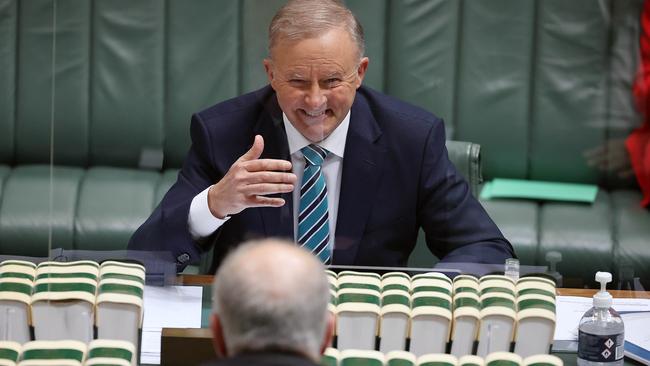
He has found time to drop a few kilos and improve his fitness. He walks his dog, Toto. He has been listening to Billie Eilish’s album, Happier Than Ever, watching rugby league and Aussie rules games along with the drama, Morning Wars, and reading novels by Anna Funder and Siobhan McKenna.
But the next election – likely to be his one and only shot at emulating Whitlam, Hawke and Rudd – remains the focus.
“We have kept the show together when it would have been very easy for us to go into a downward spiral after such a devastating loss in 2019,” Albanese says.
“We had the bushfires crisis and then the pandemic hit. We kept being constructive. There were things we objected to but did not block legislation because that would have impacted on the most vulnerable people.
“That we were constructive in 2020 has put us in a position to be more critical of Morrison in 2021. The strategic task for us now is to reinforce that but also to put in place and advocate for reimagining a stronger Australia. If we can form government next year, it will be a good time to shape the country going forward, and that is my ambition.”



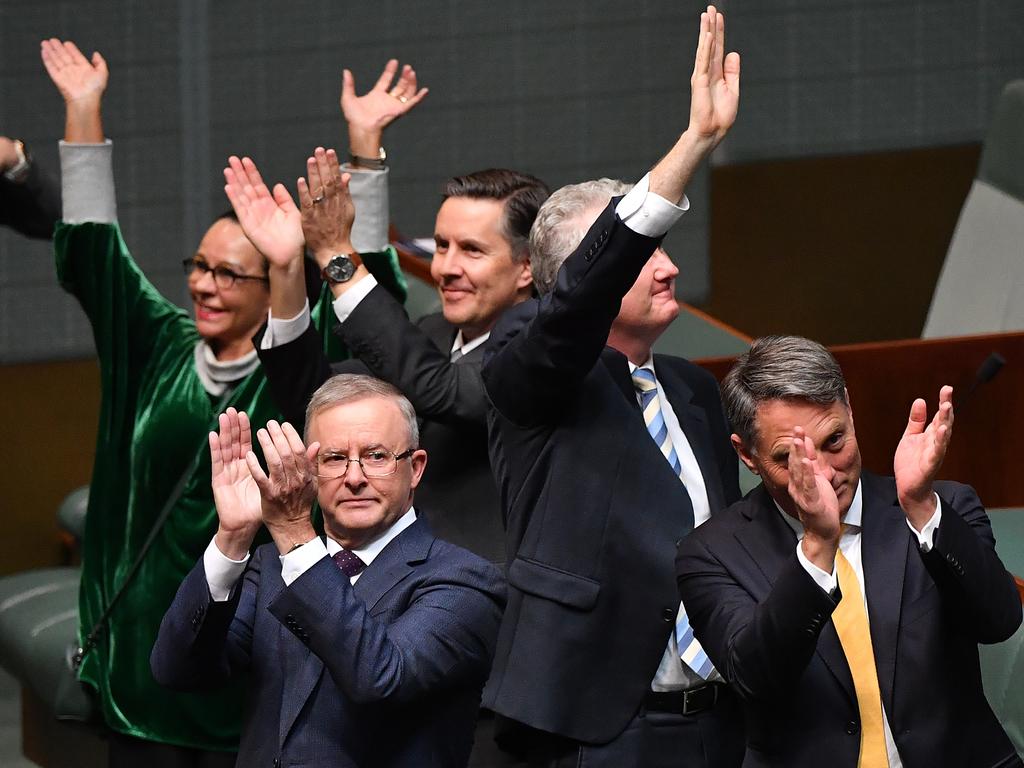
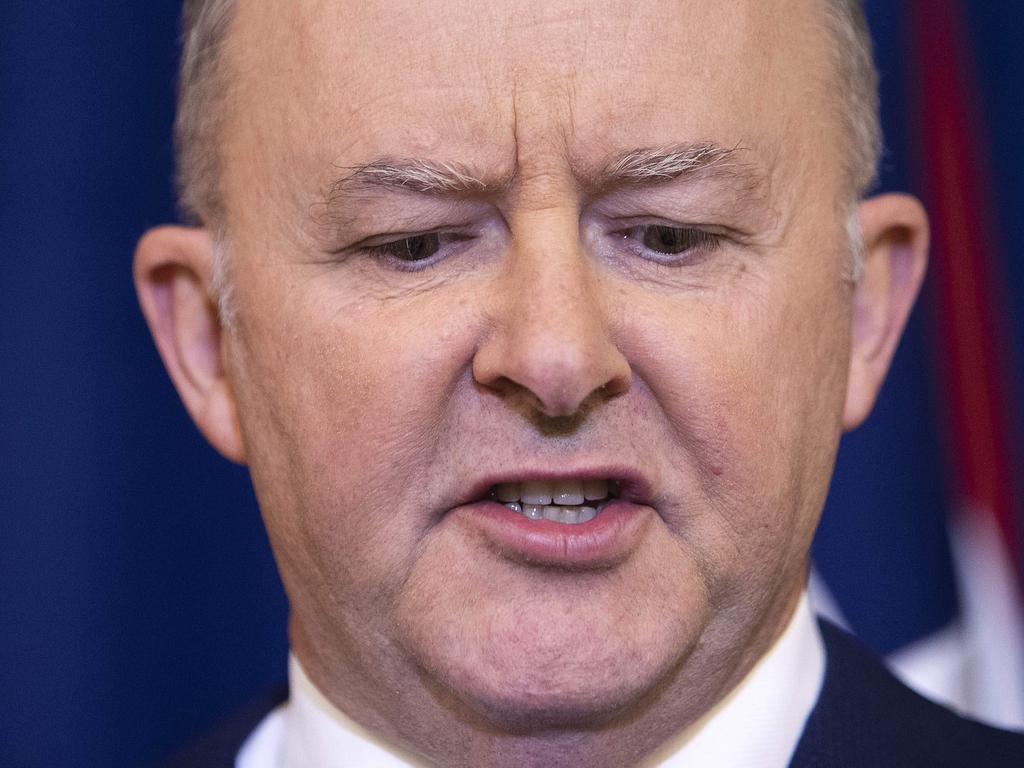
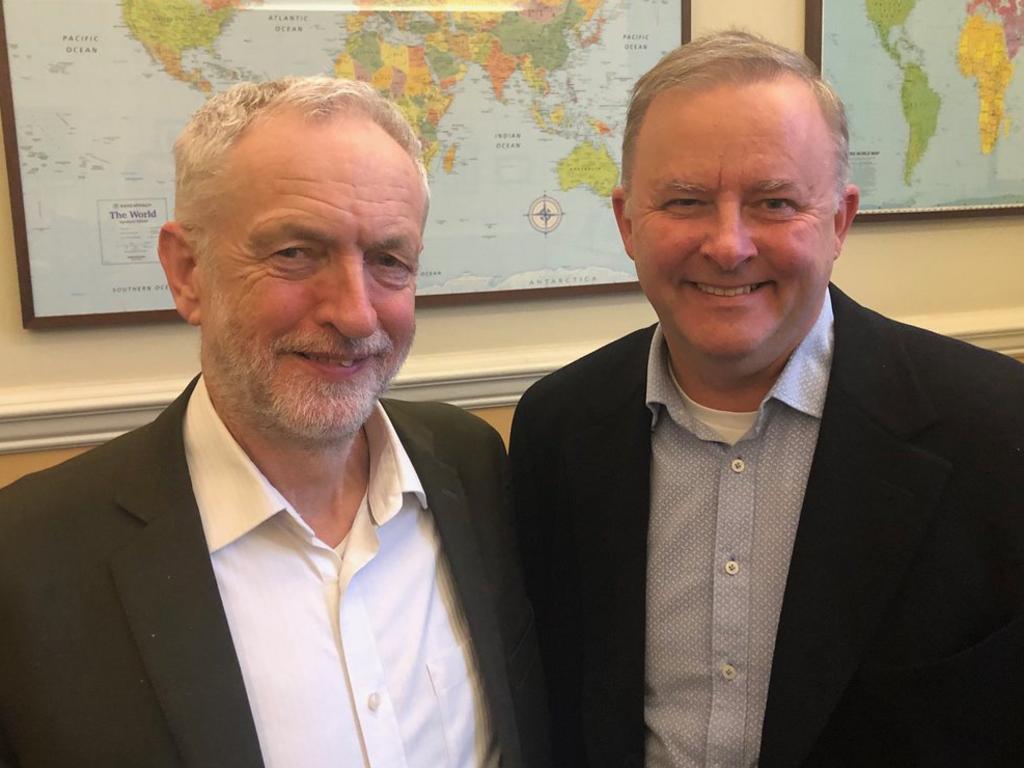


To join the conversation, please log in. Don't have an account? Register
Join the conversation, you are commenting as Logout